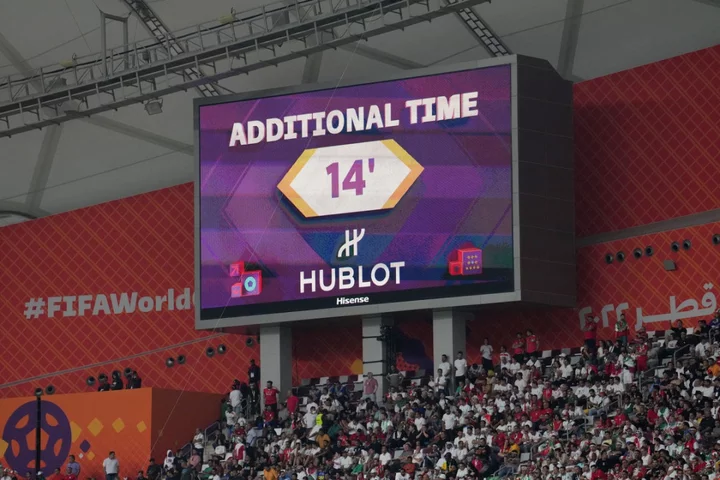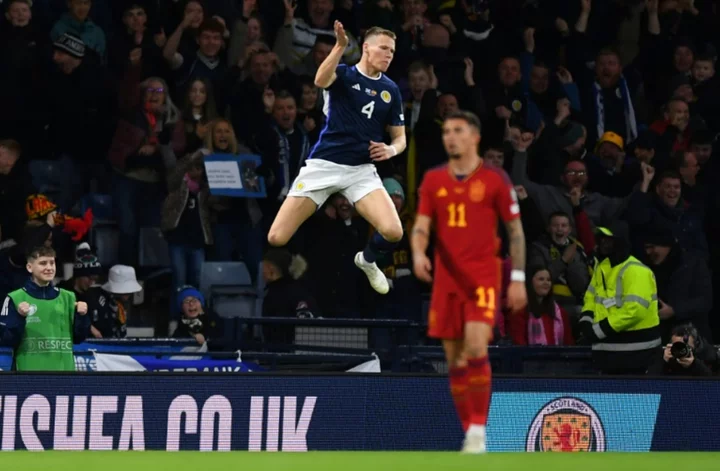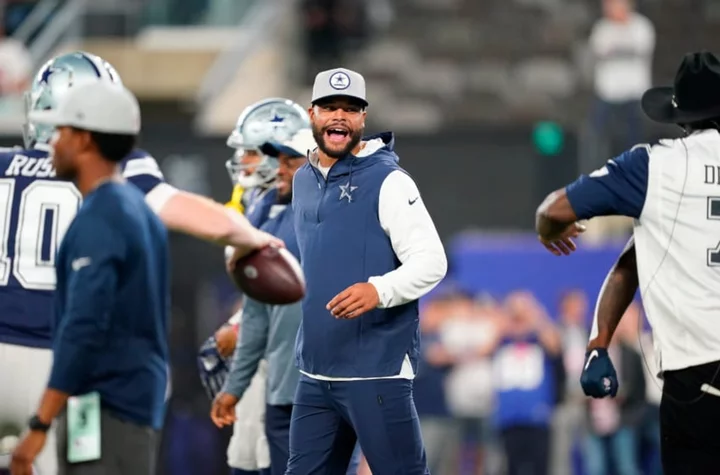New guidelines on added time and player behaviour are set to dominate the debate in the early weeks of the new domestic season in England.
Here, the PA news agency takes a closer look.
– What has happened?
Qatar World Cup." data-source="FIFA">Referees in the Premier League and the EFL, in line with every other competition around the world, have been instructed by the game’s lawmakers to more accurately calculate time lost to stoppages this season – including goal celebrations, substitutions and VAR checks.
The approach was first adopted at the men’s World Cup in Qatar last year, where on average FIFA found 10 minutes and 11 seconds were added to matches at the finals.
– Why is this being done?The idea is to clamp down on time-wasting and increase effective playing time. The game’s world governing body FIFA found that while added time was up in Qatar compared to the 2018 finals in Russia, effective playing time increased from 55 minutes and 41 seconds in Russia to 59 minutes and 47 seconds in Qatar.
– What has been the impact in England so far?
Arsenal have been early beneficiaries of the new approach, scoring in the 11th of 13 added minutes at the end of the Community Shield on Sunday to draw level against Manchester City before going on to win on penalties. The match lasted 105 minutes and 45 seconds, well above last season’s Premier League average of 98 minutes and 31 seconds.
Games averaged over 100 minutes in each division of the EFL over the opening weekend, with the highest average recorded in League Two – 107 minutes and four seconds.
– What has the reaction been?While the feedback received in Qatar was largely positive, the approach has faced some early criticism in the English game.
Manchester City manager Pep Guardiola and Manchester United defender Raphael Varane have hit out at what they say is a lack of consultation with players and coaches over the introduction of these guidelines.
The chief executive of the Professional Footballers’ Association, Maheta Molango, has met with members of the union over the summer – including Varane during meetings with both Manchester clubs last week. The PFA said players expressed concerns over the impact of this new guidance across the course of a long season, having already pushed back at a “completely unsustainable” calendar
– What do the game’s leaders say?
FIFA referees’ chief Pierluigi Collina insists the change in approach will be beneficial in cutting out time-wasting, and is confident added time levels will drop when players realise there is no benefit to trying to waste time. He pointed out that even in Qatar there was a drop-off as players adapted – with 11 minutes and six seconds added on average in the group stage, dropping as low as seven minutes and 15 seconds in the last 16.
He also pointed out the approach would not make a massive difference in the Premier League – citing the fact that 10 minutes or more had been added in four of the 10 top-flight matches played on the first weekend in March this year.
– Is there really an impact on player workload?Global players’ union FIFPRO says there could be, if the levels of added time witnessed in Qatar were sustained across a season. A report it commissioned earlier this year said the changes in added time could equate to three extra games per season for the players with the highest workloads currently.
– What else is new?
Players and coaches can expect to see a tougher and more consistent approach from officials towards dissent and abuse, as part of a wider effort to improve conduct across the board in the English game.
Referees have been instructed to show at least one yellow card where two or more players confront them, while players and coaches in the professional game who repeatedly or seriously abuse officials can expect to face tougher financial sanctions from the Football Association. In the grassroots game, such actions will lead to points deductions this season.
Fan behaviour is also being looked at, with the game’s authorities determined to pursue criminal charges against anyone found to be involved in football tragedy abuse, in addition to clamping down on pitch invasions, drugs and pyrotechnics at games.
Read MoreCharity boss speaks out over ‘traumatic’ encounter with royal aide
Ukraine war’s heaviest fight rages in east - follow live
England Rugby World Cup squad hits and misses
Dejan Kulusevski vows to ‘do everything’ to keep Harry Kane at Tottenham
Raphael Varane says players’ opinions ignored over ‘damaging’ new guidelines









